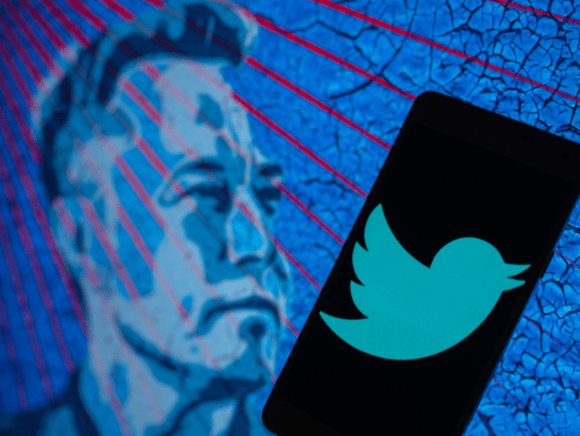The sixth installment of the Twitter Files, released on Dec. 16, suggests that the social media platform was for a time little more than a subsidiary of the FBI and other law enforcement agencies. At least, that’s how independent journalist Matt Taibbi characterized his most recent revelations. Despite some users thinking they are anonymous online, Elon Musk’s data dump is continuing to highlight how the US government monitors, collects, analyzes, and flags social media content. So, what did Taibbi reveal to the public in the latest document dump?
The Twitter Files Part 6
The newest batch of communications shows that Twitter and the FBI were in “constant and pervasive” contact. In addition to the more than 150 emails between former Twitter Trust and Safety head Yoel Roth and the FBI between Jan. 2020 and Nov. 2022, there were plenty of other messages and requests for information pertaining to Twitter users who were involved or related to active investigations. But Taibbi noted that the FBI also pushed the social network “to take action on election information, even involving joke tweets from low-follower accounts.”
 The FBI’s social media-focused task force – FTIF – had corresponded regularly with Twitter on a wide range of issues, from alleged foreign influence to election tampering. Other agencies reached out to Twitter, including the Department of Homeland Security (DHS), “which partnered with security contractors and think tanks to pressure Twitter to moderate content,” Taibbi noted.
The FBI’s social media-focused task force – FTIF – had corresponded regularly with Twitter on a wide range of issues, from alleged foreign influence to election tampering. Other agencies reached out to Twitter, including the Department of Homeland Security (DHS), “which partnered with security contractors and think tanks to pressure Twitter to moderate content,” Taibbi noted.
While it will come as no surprise to many that the government uses big data for various pursuits, Taibbi unearths something more troubling in his Twitter Files threads. The FBI, the DHS, and others would routinely submit social media content to Twitter “through multiple entry points” and “pre-flagged for moderation.” This led to Taibbi wondering if the FBI and DHS could handle flagging work themselves or if they outsource this task.
Meanwhile, a November 2022 email revealed that the San Francisco FBI wanted action on four accounts. One of these users – @fromma – was mostly a joke account, but Twitter personnel searched for reasons to suspend his account and came up with “civic misinformation” on Nov. 8. In a Nov. 5 email, the FBI’s National Election Command Post sent a long list of Twitter accounts – many of which were satirical or with very little engagement – to the San Francisco field office that “may warrant additional action.” Agent Elvis Chan then gave the list to his “Twitter folks.” This was seen repeatedly, including in January 2021, when Twitter executives were processing an FBI list of “possible violative content” tweets.
In a Slack exchange, company staff congratulated each other for the “monumental undertaking” of reviewing the mountain of “possible violative content.”
A Sept. 16 letter from legal executive Stacia Cardille to former Deputy General Counsel Jim Baker mentioned her “soon to be weekly” meeting with the FBI, DHS, Department of Justice, and the Office of the Director of National Intelligence.

Matt Taibbi (Photo by Daniel Zuchnik/WireImage)
“The Twitter exec writes she explicitly asked if there were ‘impediments’ to the sharing of classified information ‘with industry.’ The answer? ‘FBI was adamant no impediments to sharing exist,'” Taibbi reported. “This passage underscores the unique one-big-happy-family vibe between Twitter and the FBI.”
An FBI liaison went as far as sending the company a package of products, which turned out to be DHS bulletins that emphasized the necessity of enhanced collaboration between law enforcement and “private sector partners.” Chan and Roth also discussed the possibility of utilizing Teleporter, a digital platform whereby Twitter could receive reports from the FBI.
“The takeaway: what most people think of as the ‘deep state’ is really a tangled collaboration of state agencies, private contractors, and (sometimes state-funded) NGOs. The lines become so blurred as to be meaningless,” Taibbi reported.
24/7 Surveillance
Law enforcement agents no longer need to sit inside a white minivan pretending to be delivering flowers or pizza while spying on people. Instead, they can now sit in an office and monitor the content posted on Twitter. As Taibbi noted, the FBI has plenty of agents dedicated to watching the social media landscape and surveilling individuals who have done nothing wrong. Critics will often purport that the First Amendment applies to the government and not the private sector. However, is that argument still valid if the state is directing a business to censor content, delete information, and ban accounts for something as arbitrary as a satirical tweet?
More Twitter files will be released by Taibbi, Bari Weiss, and Michael Shellenberger.




